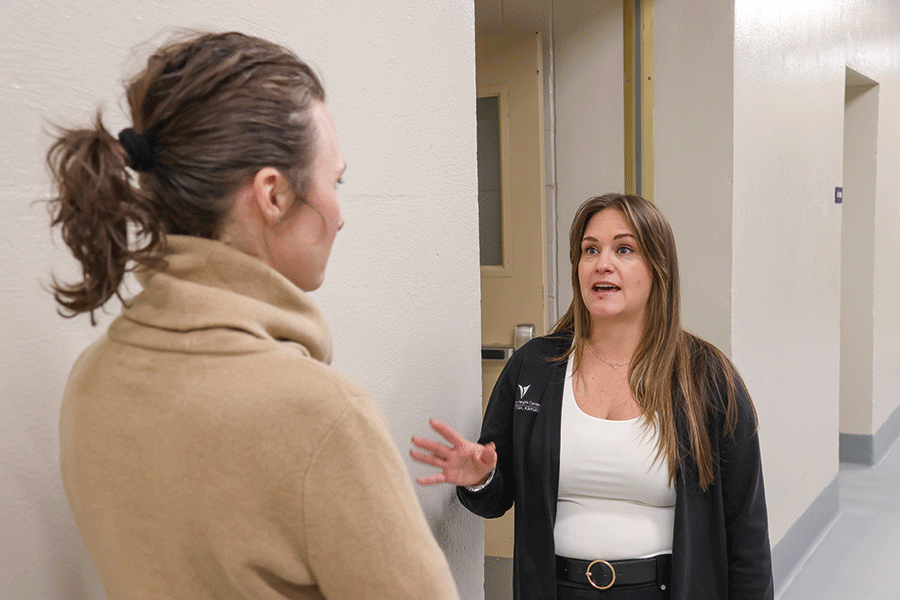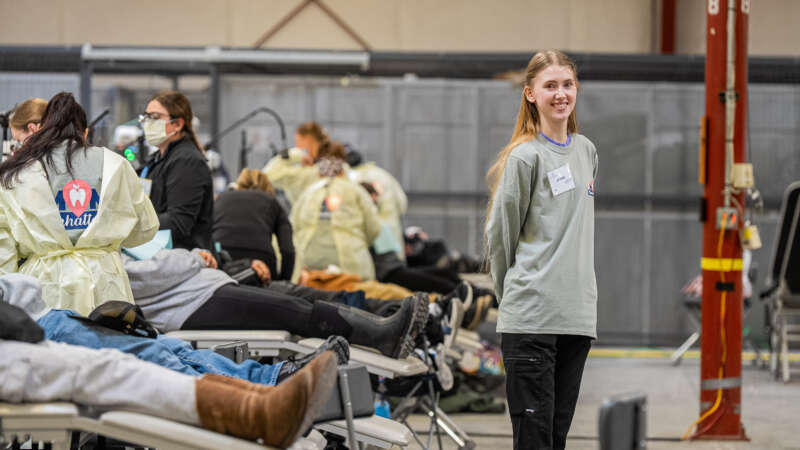Veterinary social worker helps veterinary employees, K-State interns and pet owners work through grief.
After a long, hard day, one of the most comforting amenities of life is coming home to a fluffy, wagging tail or a purring snuggle-buddy. Pets deliver companionship, stress reduction, social connections and emotional support in difficult times.
That’s why losing a pet can take a huge toll on our mental health. But veterinary social workers like K-State’s Cassidy Moreau are instrumental in grief recovery and mental wellness for not just clients — but also veterinarians.
“Suicide rates for female veterinarians are 3.5 times more likely than the general population and 2.5 times more likely for males,” Moreau said. “We need to normalize the conversation about this and be more intentional.”
People like Moreau provide a valuable first step toward healthier and happier pets, owners and vets.
What does a veterinary social worker do?
At K-State’s Veterinary Health Center, Moreau makes sure veterinary students, faculty and hospital clients are well-cared for. She encourages intentional well-being and mental health care with her individual and group sessions called “Paws of Comfort.”
“I support faculty and even the fourth-year students in the hospital on their clinical rotation,” Moreau said. “That could be offering some crisis management on a difficult day or case, and helping them with client communication. Sometimes clients may not want to talk with me, but I can help support the clinicians or staff working with them.”
Without a social worker, veterinarians can experience compassion fatigue and suffer from burnout from trying to juggle the heavy case load.
“If I am working with a client, that is taking a stressor off our students, faculty and staff. I also help clients with the social or emotional pain of having an animal with health issues,” Moreau says. “This allows for our students, faculty and staff to focus on patient care.”
We often overlook the depth of grief and pain from the loss of a pet. After all, pets are often a steady rock in our lives, a “friend” to lean on when times get tough. Veterinary social work gives pet owners and caregivers an outlet for their grief and tangible tools for recovery.
“We need to let people know they are not fighting in the dark,” Moreau says. “They have someone here that can assist them.”
By Kate Ellwood
Curated from: How veterinary social work supports mental health and human-animal bonds



